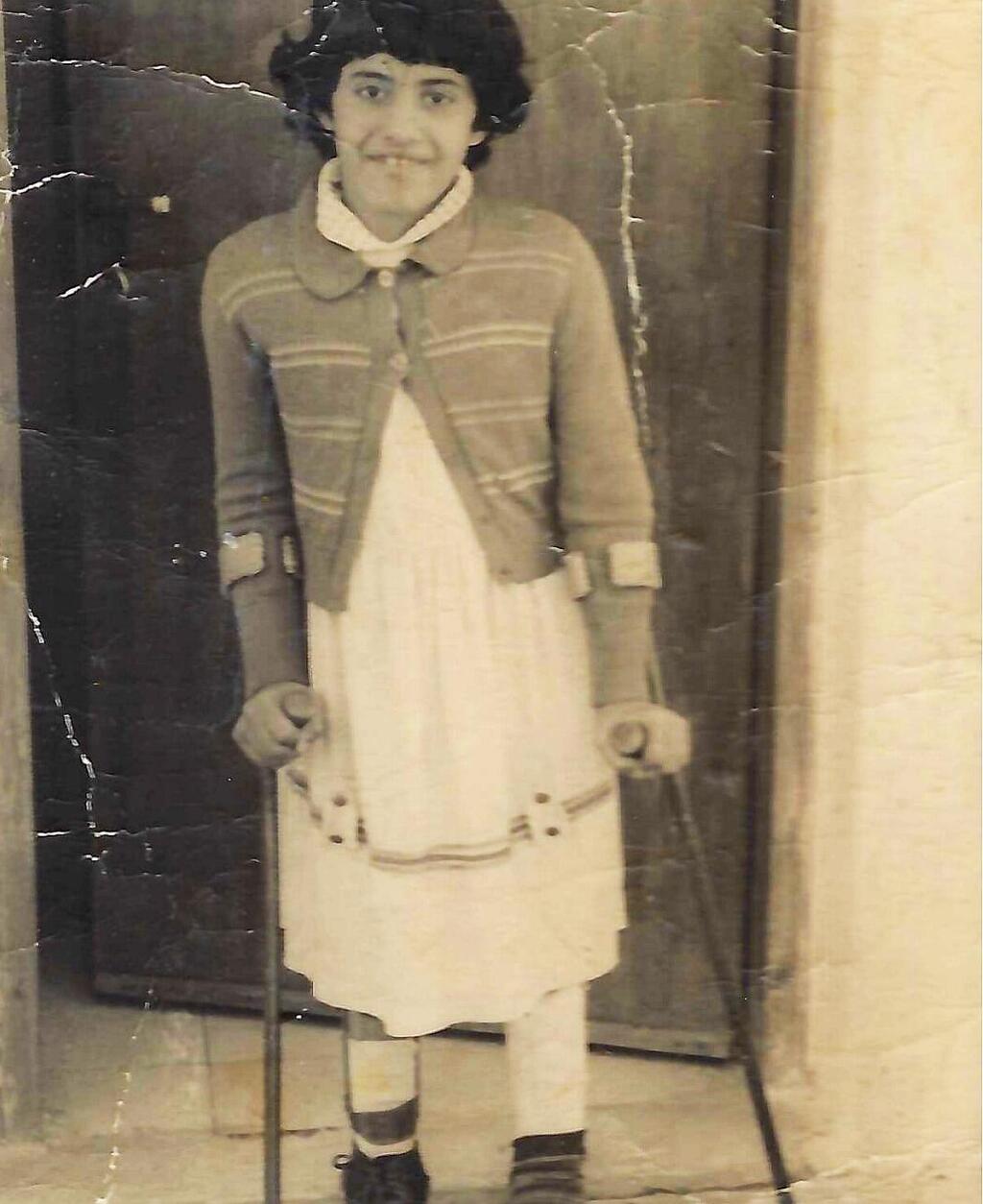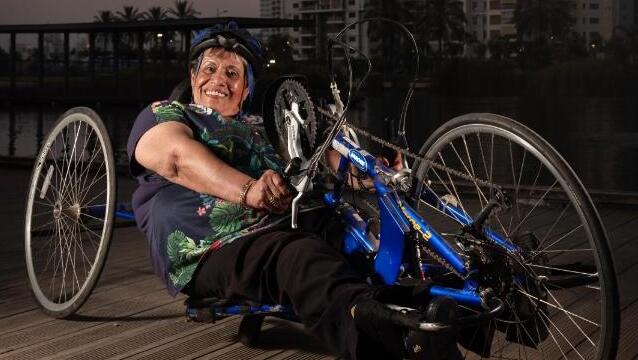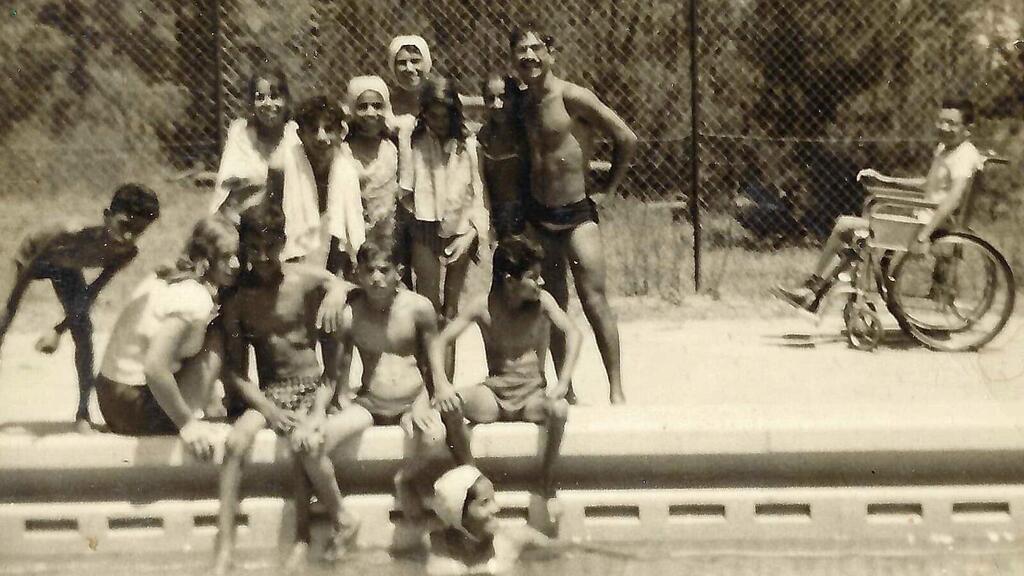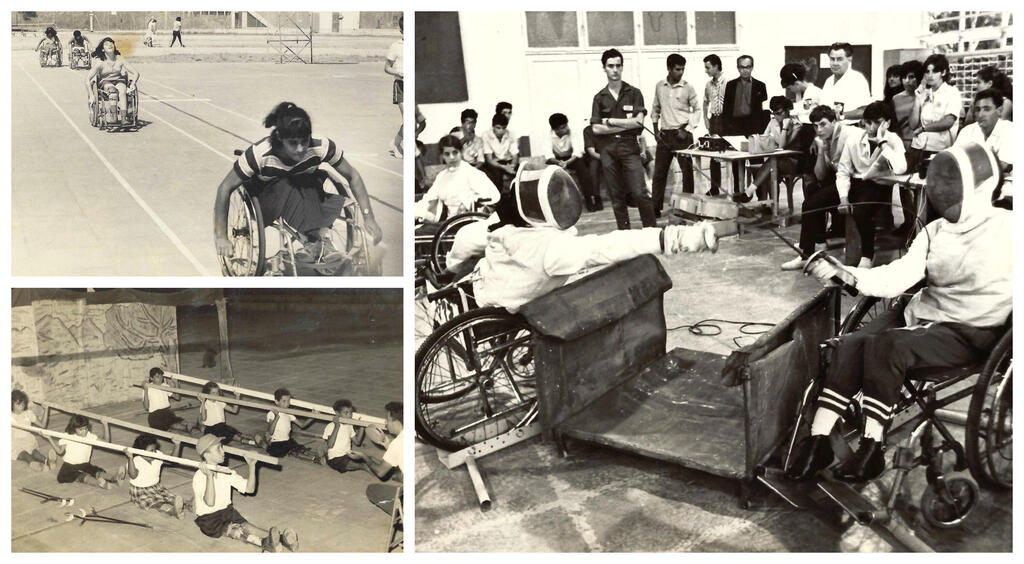After making Aliyah from Yemen as an infant, Ayala Malhan-Katz spent most of her childhood in hospitals for her polio, yet she grew to be an inspiring athlete with 12 Paralympic medals.
Malhan-Katz was born in Yemen 73 years ago. When she was a month and a half old, she made Aliyah with her parents and two siblings, leaving behind their sister who passed away. Upon arriving in Israel, the family was placed in an immigrant and refugee absorption camp (ma'abara).
At only 6 months, Malhan-Katz was diagnosed with polio, which eventually paralyzed her from the waist down. As a result of her illness, she was taken away from her parents to a hospital unbeknownst to them. For months, her parents combed through every hospital in Israel looking for her.
"From the absorption camp, I was sent to the San Simon Monastery in Jerusalem's Katamon neighborhood, which was converted into a hospital that housed more than 200 babies with polio," Malhan-Katz shared. "The polio disease was a mystery back then, just like COVID in the beginning. No one knew how to deal with it. The treatments were experiments and we were all guinea pigs, far and torn away from our families, which sometimes - like my family - did not know about our whereabouts at all."
She was reunited with her father at the age of four, a moment she remembers vividly. "I saw a skinny, bearded man who sat quietly next to my bed and didn't speak. I asked the nurse who he was and she asked him the same. My dad didn't know Hebrew and explained in pantomime that he was my father."
Malhan-Katz stayed at the hospital for another five years. Her family lived far away, and they were prohibited from staying over to sleep with her due to the mystery that shrouded the disease back then. The hospital conditioned her release on her parents leaving the ma'abara and moving into a house.
Since they first reunited, her father would visit her every week and bring books and sweets with him to comfort her.
"The time with him was our quality time that I remember with joy. He said that they never gave up on me despite everyone thinking I was one of the abducted kids," Malhan-Katz said. "That's how it was until iI was nine, and then dad brought me home to Rosh Ha'ayin," when the family finally moved out of the ma'abara.
Malhan-Katz then started attending school and joined a sports club nearby. ILAN, an Israeli umbrella organization for the treatment of disabled children, made sure she and other disabled children had a way to get to the lessons and camps. Through this, young Malhan-Katz started developing a passion for sports.
Fast forward to 1968: Malhan-Katz was 18 years old and was slated to compete in fencing in Mexico. Since the original location could not host disabled gymnasts, that year's Paralympic Games were held in Israel.
"This was a powerful and amazing experience. All the best athletes from all over the world came to us. Everyone was inspiring and for me, that was the dream."
Malhan-Katz took finished third, which made her develop an appetite for more.
"I wanted to win first place. And I did get to do that in 1980 in the Netherlands. There we finished first in group fencing and also individual fencing. I also won first place in basketball. Back then, the media was not like today and no one really took interest in us. Today, it's different."
The athlete admitted that the road to glory wasn't always easy, and there were times when she struggled to get up for training.
"But from a very young age, I learned that there is no such thing as 'no' because 'no' brings negative thoughts and there is nothing that I can't do," she said.
Malhan-Katz participated in six Paralympic games, competing in basketball, fencing, and swimming. "I won many medals - four gold, four silver, and four bronze - 12 Paralympic medals is a nice achievement," she said with a smile.





